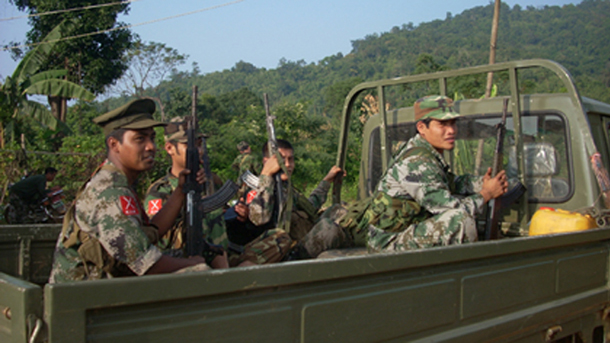Forty-two members of the Kachin Independence Army (KIA) deserted to the Burmese military on Monday, state-run media has reported.
The men apparently left their positions to surrender the government’s Infantry Battalion 37 at Tarlawgyi Village of the Kachin State capital Myitkyina with their weapons.
La Nan, general-secretary-1 for the KIA’s political wing, the Kachin Independence Organization, told The Irrawaddy on Wednesday that these members disagreed with the leadership over the weekend’s new year celebrations.
“There was fighting in the region and because of the security concerns they were not allowed to participate in the Thingyan [Buddhist new year] festival,” he said. “They complained and there were tensions over this issue so they deserted.
“These persons who joined the Burmese troops are members of militias who are supported by the KIA with arms rather than direct soldiers in our army.
“Our aim was to help them protect their region and villages because there is fighting commonly in the area so we equipped them with weapons.”
The state-run The New Light of Myanmar newspaper claims that the group “exchanged their weapons for peace.”
Kyaw San, a former corporal who was one of the leading members of the deserters, was quoted as saying that his group joined the Burmese troops as they no longer believed in the fighting.
The government is planning to help the KIA members and their families to reintegrate into society, reported the state-run media.
La Nan said that government troops have been attacking Kachin positions practically every day all over the state and that there have been 66 clashes from early April until the present time.
These mainly involve KIA Brigade 3, based in Momauk Township, and Brigade 5, which is based in Tarlawgyi Village.
The Burmese government army and KIA have been involved in a protracted conflict since a 17-year-old ceasefire broke down last June.
Despite several attempts at renewed ceasefire negotiations, around 70,000 civilians, including many women and children, have fled their homes to live in temporary camps by the Sino-Burmese border because of the fighting.

















